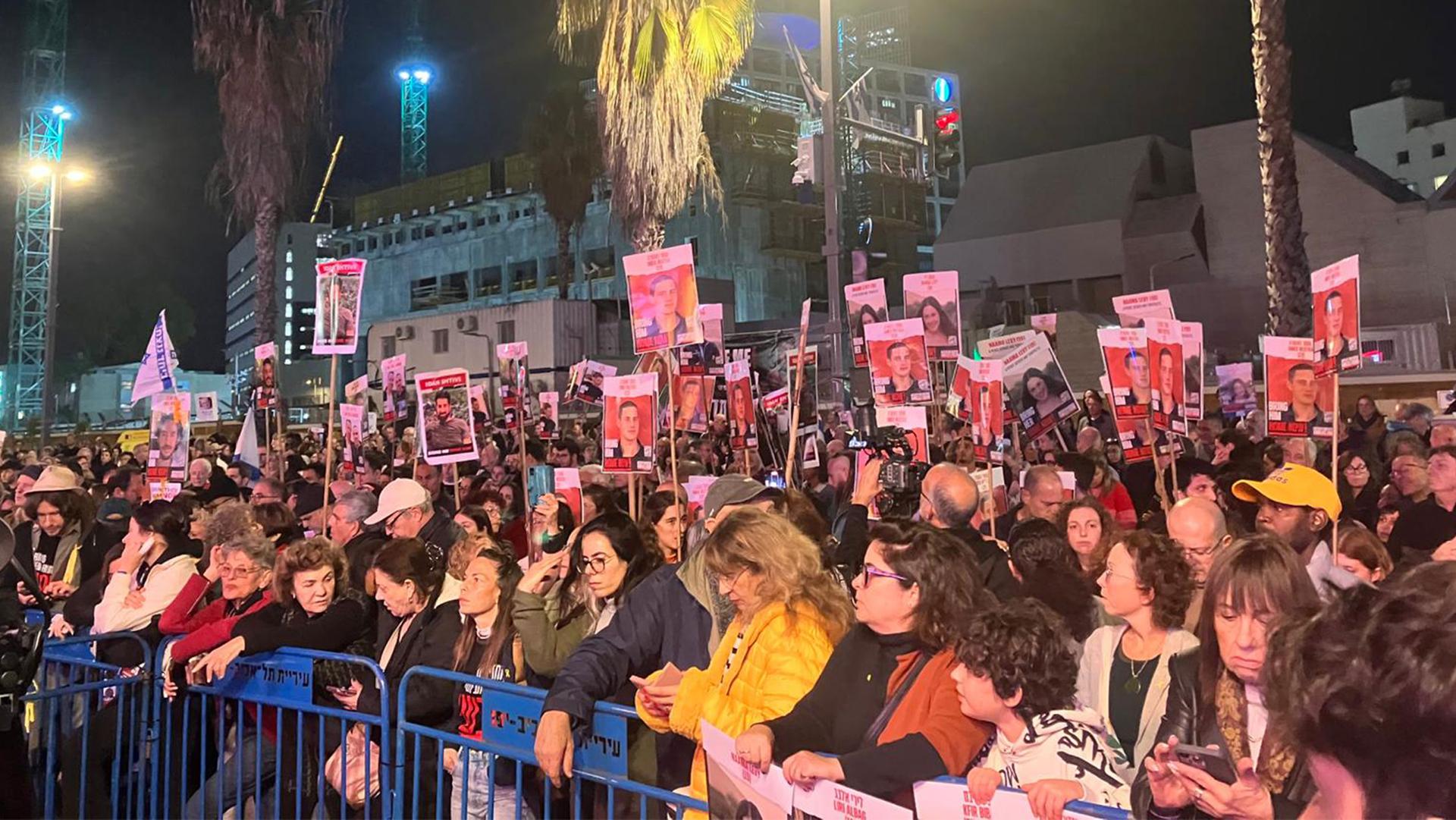Most families of Israeli hostages want their loved ones returned home but some say it’s more important to defeat Hamas first
“Deal now!”
This chant has become a battle cry for the thousands who gather every Saturday night in what’s been dubbed “Hostages Square” in central Tel Aviv.
Activists, musicians and family members of the 134 remaining hostages kidnapped by Hamas on Oct. 7 all take turns at the microphone.
The crowd has become united under one central demand for Israeli Prime Minister Benjamin Netanyahu’s government: Prioritize the release of the hostages above all else.
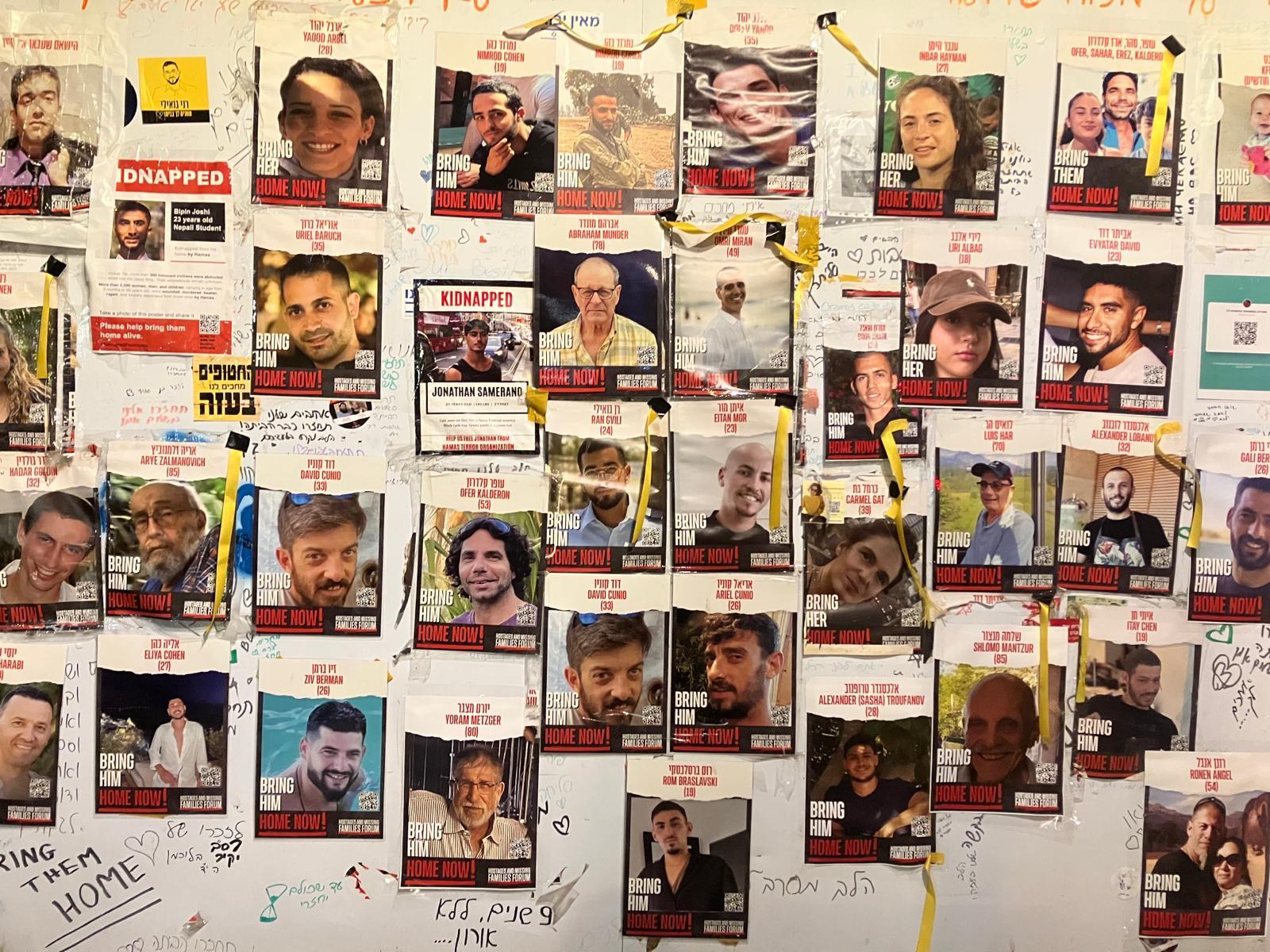
The weekly Saturday night gatherings are organized by the Hostages and Missing Families Forum, the largest — and largely left-wing — group representing the families of the hostages.
But a small group of family members have begun pushing a different message: Defeat Hamas first — even if it means loved ones must stay in Gaza longer.
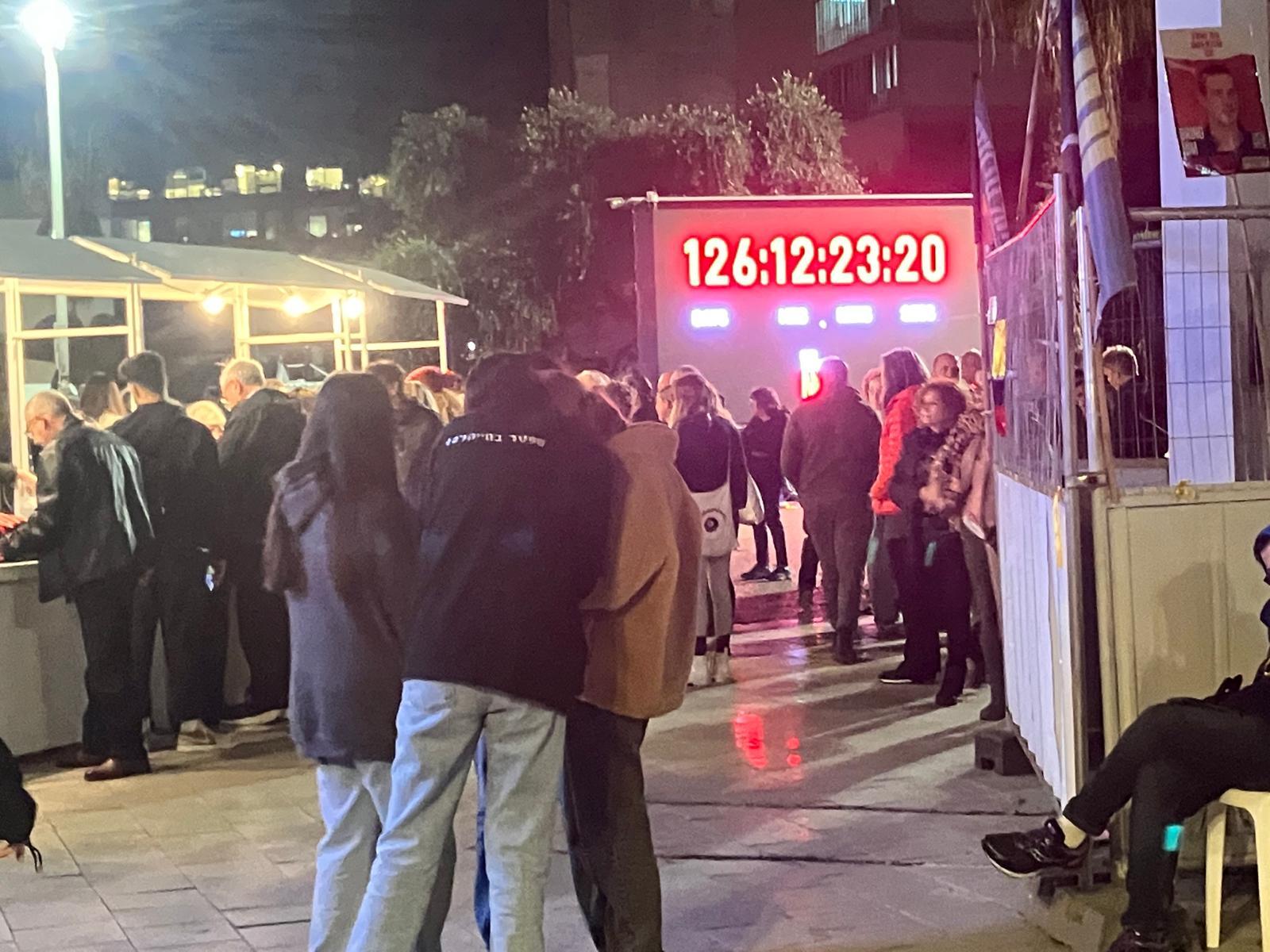
“We really want our hostages to be at home as soon as possible,” said Zvika Mor, whose 23-year-old son Eitan was kidnapped while working security at the Nova Music Festival in southern Israel.
“But we want the Israeli government to consider the future of the people of Israel,” Mor added.
Mor is the co-founder of Forum Tikva, a small counter-movement within the group of hostage families who regularly protest outside Israel’s parliament.
Its members are mostly made up of religious right-wing people who support Netanyahu’s aim of “total victory” over Hamas.
“We know that every time [Israel] negotiates with terrorists and releases them from jail, they come back and murder Jews here in Israel,” Mor said, referring to previous deals with Hamas in which hostages have been exchanged for Palestinian prisoners being held in Israeli jails.
In a deal made in November, 105 hostages were released in exchange for 240 Palestinian prisoners.
Mor made specific reference to a 2011 deal in which more than 1,000 Palestinian prisoners were released in exchange for one Israeli soldier — Gilad Shalit. There are about 7,000 Palestinians held in Israeli prisons, including minors and activists — nearly 2,900 of them held without trial.
Shalit was kidnapped from his tank in 2006 and taken into Gaza, where he was held for five years.
One of the Palestinian prisoners released in the exchange was Yahya Sinwar, a Hamas leader who is believed to have headed the group that orchestrated the Oct. 7 attacks.
Mor said his concern is that many families of the hostages are overthinking with their hearts and not enough with their heads.
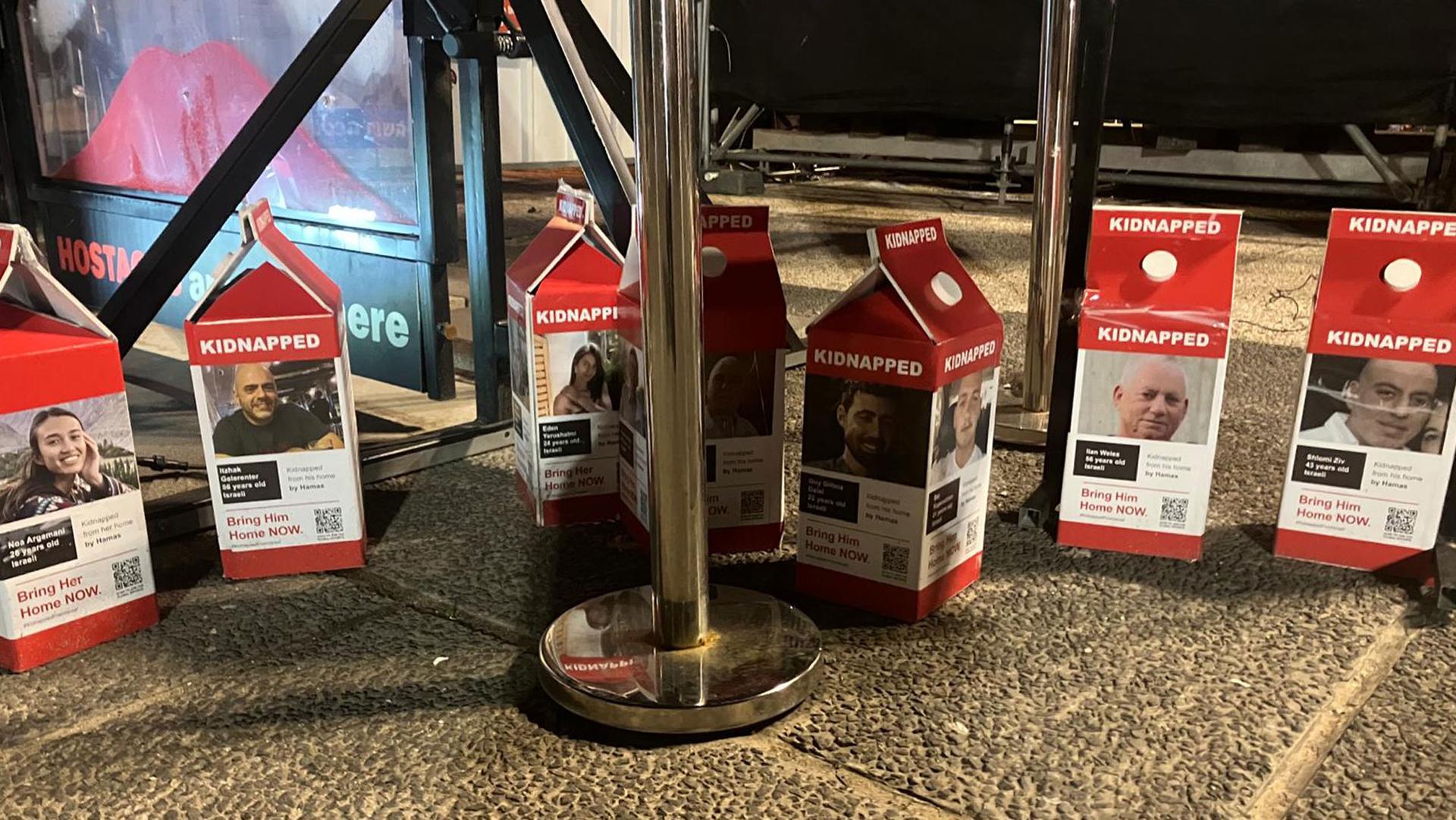
The growing schism between the families is indicative of the tricky balancing act Israelis and their government have been grappling with since the start of this war — defeating Hamas, perhaps by getting the group to surrender, versus releasing as many hostages alive as possible.
“If Israel cannot by any means release the hostages, this will be a huge tragedy,” said Yossi Shain, a political scientist at Tel Aviv University.
“It will be a stain on our souls into the next generations.”
In some ways, it already feels that way. Last week, the government said that at least 30 of the remaining hostages have been confirmed dead. Some reports suggest that number could be up to 50.
It is perhaps why, back at Hostages Square in central Tel Aviv, the sense that time is running out feels stronger than ever — as is overallfrustration with Netanyahu’s government.
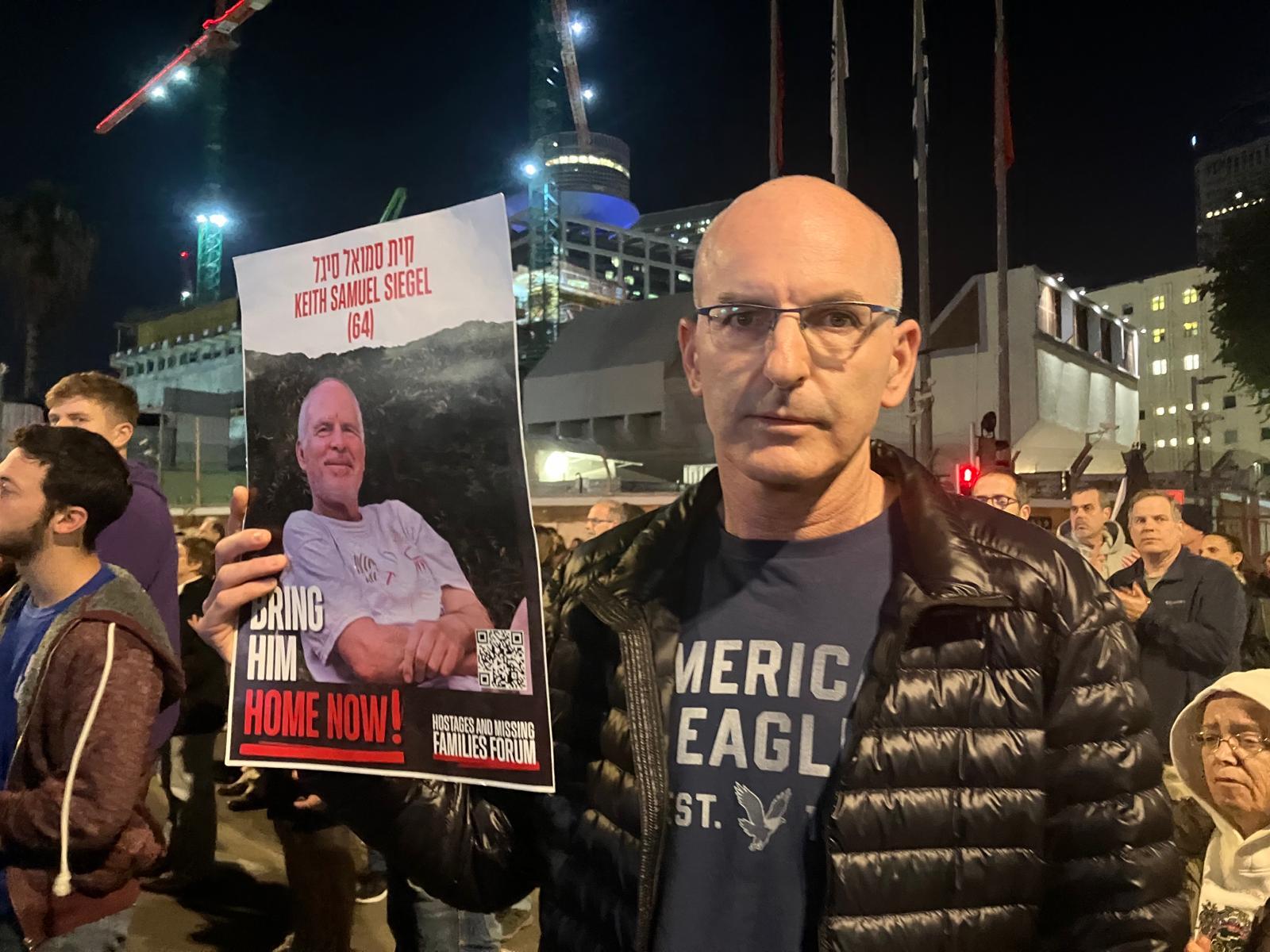
Einav Zangauker, whose 24-year-old son Matan is still being held in Gaza, delivered a sharply worded speech to the crowd directed at the prime minister.
“I voted for you, Netanyahu! When will you choose me?” Zangauker exclaimed. “Get over yourself; we know there’s a possible deal, and you’re hiding the truth from us. You have the power to bring back the hostages as early as tomorrow morning.”
In an interview with ABC News over the weekend, Netanyahu addressed the tension, insisting his government’s priority is the safety of the country as a whole.
“I’m not sure that anybody can put themselves in the position of the families, but neither can the families put themselves in the position of the decision-makers,” he said.
“These are two separate things. They reach our hearts. They reach my heart. But I am also responsible for the safety and security of the people of Israel and to make sure that these terrorist outrages and these kidnappings do not happen again.”
But a recent poll suggests that Israelis don’t believe Netanyahu’s government is doing either of those things — neither keeping the country safe nor on track to bring the hostages home.
Whatever the prime minister decides, he needs to act quickly.
The US and other Western countries have also expressed frustration with the continued Palestinian death toll in Gaza and are pushing for some type of ceasefire.
Related: ‘We need to tell the story’: Parents of an Israeli hostage in Gaza grapple with uncertainty
We’d love to hear your thoughts on The World. Please take our 5-min. survey.
